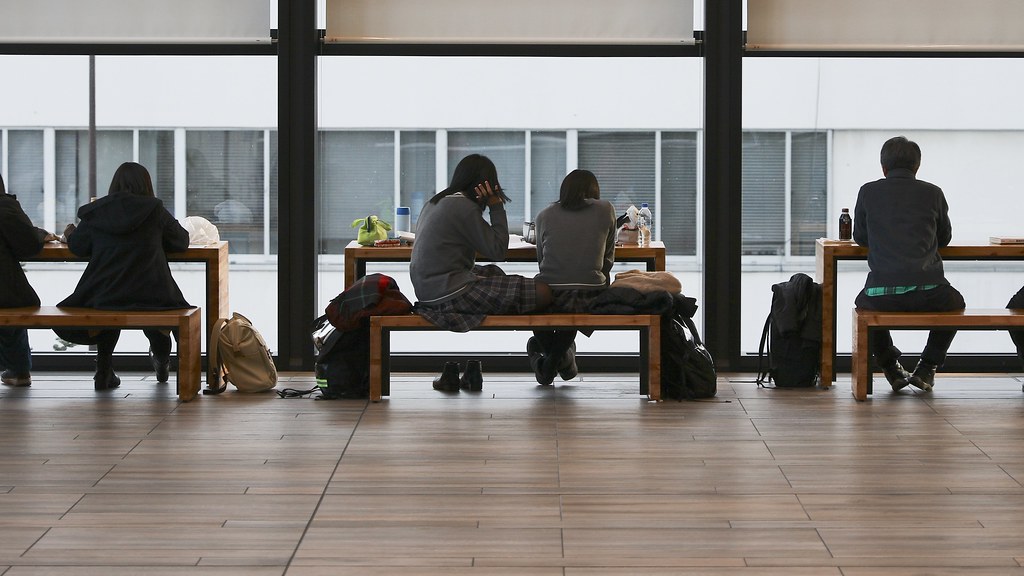After years of processing times and submitting hundreds of documents for multiple applications, the Canadian citizenship test is the light at the end of the tunnel for many newcomers.
For some, memorization of random facts is the ultimate goal. But if one looks at the study guide provided by Immigration and Citizenship Canada, through a more critical lens, there’s a troubling reality that, to date, has largely gone unsaid: the materials designed to ‘welcome’ new Canadians is wholeheartedly patronizing.
Official study materials exhibit glaring condescension
Within its first few pages, the study guide explains that: “Canada’s openness and generosity do not extend to barbaric cultural practices that tolerate spousal abuse, “honour killings,” female genital mutilation, forced marriage or other gender-based violence. Those guilty of these crimes are severely punished under Canada’s criminal laws.”
This phrasing is reminiscent of the Islamophobia of Stephen Harper’s Conservative government, whose references to people practicing “barbaric cultures” was code for Muslims. The inclusion of this passage in a document meant to help newcomers ‘discover’ Canada is glaringly condescending and assumes that immigrants studying for the test are inclined to commit these acts.
Flipping ahead a few pages, the guide also states that: “Some Canadians immigrate from places where they have experienced warfare or conflict. Such experiences do not justify bringing to Canada violent, extreme or hateful prejudices.”
The inclusion of such a self-evident statement is equal parts patronizing and accusatory towards newcomers. This passage assumes that newcomers are inclined towards violence and somehow wish to emulate the conflicts that may have led them to leave their country of origin.
In 2019, the majority of immigrants to Canada arrived from India, China, the Philippines, and Nigeria. Given the fact that the overwhelming majority of immigrants become citizens, this means that a vast majority of the people studying to take the citizenship test are either Black or people of colour.
Warning newcomers against bringing violence to Canada is condescending and hypocritical on the part of the Canadian government. One need not dig too deeply to reveal the fact that Canada’s colonial foundations were established by Europeans who committed innumerable genocidal acts against Indigenous peoples.
It’s Canada’s dark and dirty secret that many of these violent colonial policies remain ongoing, as exemplified by the RCMP’s invasion of unceded Unist’ot’en territory in February. The violence of the Canadian state is further carried out by police units who disproportionately target and kill Black people in Canada.
In another section, the study guide states that: “In becoming Canadian, newcomers are expected to embrace democratic principles such as the rule of law.”
This sentence assumes that newcomers are uncivilized and unfamiliar with democracy. It evokes historically racist narratives that European cultures are more advanced and civilized than non-white cultures and societies.
Demonstrating more knowledge about Canada than Canadians
The difficulty of the test questions also excessively challenge and patronize newcomers, to the extent that 9 out of 10 Canadians would fail the current test. After years of working and studying in Canada and adapting to Canadian communities, newcomers are required to demonstrate more knowledge of Canada than Canadians.
That’s a reality that is all-too-familiar to many new Canadians, including Feisha Zhu, an accountant from Toronto, who took the test nearly seven years ago.
“At the time I was an English as a Second Language (ESL) student,” she recalls. “I was the only one in my family to take the test. For my parents it was impossible because it (was) too hard.”
In addition to the need to be proficient in English or French, Zhu said that the citizenship didn’t ask the questions she felt were important.
“After the test I forgot almost all the information because it is too detailed,” she said. “There are some names, names of political parties and stuff like that which were not in the booklet. Not everything is in the booklet like it is for the driving license test.”
Specifically, Zhu said the sections that outline Canada’s government and legal structures, are too complex for those just learning to speak English or French.
“The language is not that easy to understand, so maybe they can change it to make it easier to understand and more straightforward,” she said. “That would be helpful.”
Sid, whose name has been altered to protect their privacy, is a student in the Greater Toronto Area, who took the test in 2016. In retrospect, they said much of the information they studied in preparation for the test has been irrelevant.
“I don’t (use) any of it,” Sid said in an interview. “I honestly can’t remember any of the information and I don’t feel like I use it on a daily basis.”
Sid also supported Zhu’s view that efforts to simplify the language used in testing need to be taken seriously. In fact, Sid said the government should consider doing away with the tests altogether.
“English is my first language, but if you’re a second-language English speaker the way they phrase the questions can be difficult to understand. It should be more generalized information. If for some reason they have to ask us these questions, and I don’t really understand why, they should do it in a teaching format rather than a test format.”
Citizenship is more than an exercise in memorization
I was lucky to take the test a few weeks before emergency measures took place due to the pandemic, as citizenship tests have currently been postponed due to COVID-19, further prolonging the process for immigrants and refugees.
I had been living in Canada for eight years prior to taking the citizenship test in early 2020. Like many immigrants who take the test, I was already familiar with Canada. Being instructed not to “commit crimes” rubbed me the wrong way. These disciplinary warning were condescending and wilfully ignorant of the fact that I had been living in Canada for years.
The glaringly evident statements in the study guide are followed by equally challenging questions on the test. Despite graduating from a Canadian high school and a post-secondary degree from a Canadian university, I failed several practice tests because I wasn’t able to memorize answers.
During the citizenship ceremony following my testing date, I watched a recording of Justin Trudeau welcoming us as citizens, yet the memory of the patronizing test I had just passed negated his warm welcome.
Ayse Koca is a political science graduate from York University. Her writing examines structural forms of social and political inequality in Canada.





Your post will hopefully open more discussion among all of us as both citizens and residents in Canada.
Our Grandfather first arrived in Halifax in 1906 and eventually – after several trips back-and-forth to China – he brought his son (our Father) with him in 1916. The white racism back then was even worse than anyone can imagine. While the States and Canada enforced a Chinese Exclusion Act that made it nearly impossible to bring families over when the men arrived to provide cheap labor, Canada was worse. They actually created the Chinese Head Tax! It was a tax imposed on all Chinese immigrating to Canada and was the equivalent to 2 years’ wages at the time! And still they came to pursue opportunities for a better life than in their homeland. My Grandfather paid it, he paid it for my Father. And then paid it for our Grandmother – his wife – to come over in 1918. But she didn’t like it here and so she went back to China a year later. And NO refunds! Dad was bullied from the day he arrived in 1916 but he stayed and eventually graduated with an Engineering Degree from Nova Scotia Tech. He did go back to China over the years and eventually married our Mother but couldn’t bring her and our Sister over until 1949 when the racist laws changed!
And while Justin Trudeau finally managed to make a token ‘apology’ to the Chinese for the Canadian government’s actions a century ago, I continue to demand that we get out Head Taxes returned to us – WITH interest! Even at 1% interest, you can imagine how much $3,000 would be today compounded over a century.
And it’s not just because of the principle of returning a racist action. When I later found out just how much they collected from the Chinese Head Tax and how much the Canadian Railway cost to build (mostly at great loss in Chinese lives and labor) I felt that this was truly an injustice that had to finally be corrected and paid back. There are still bodies of Chinese laborers buried inside of many tunnels in the mountains where they were sent in with explosives, never to return alive with no closure for their families left behind in China that they were supporting. And the cost? I understand that the government collected $24 million in Chinese Head Taxes. And what did the Railway cost to build? $25 million! So in other words, we paid for the Canadian railway and then we basically built it with our labor. So we technically own it!
Perhaps if people looked at Canada’s past racist history with that in mind, we would realize that much of its roots originated from the very racist white British history over the years: India, China, Japan, Canada, West Indies, etc…
I will continue to keep pointing this origin out even if it only educates one person at a time. I sure wasn’t ever taught any of this sad history while growing up and going to school in Halifax through the 50s and 60s.
Sorry for the long rant. I guess my point was that I agree and disagree with your post. In man ways, it’s important to spell our some of the fundamental points that our society follows. And by not pointing them out to those just arriving, we are telling them to do whatever they want. Unfortunately, having been from a family of very early immigrants, we certainly paid a dear price for being among those who paid a dear price to finally be “Canadians.” And we did learn to integrate.
In every country, I believe it’s important for immigrants to learn the rules when arriving. Not just the laws but also our societal and cultural laws. We certainly do not try to impose religious rules. But in recent years, I’ve seen so many countries – Canada and the States – have some immigrants imposing and demanding that their rules not only be respected but absolutely integrated into our general society.
And this is why I believe that actually citing certain things out in writing – albeit briefly – is very important. While those of us who are already hare would certainly try to be respectful, we should also expect some basic respect for the way our current society works. Do NOT try and force your ways upon the rest of us as soon as you arrive. Not cool!
Respectful integration has always been the key to why Canada is still one of the best countries in the world. And why people want to immigrate here. Don’t try to change success!
The exploration of Canada’s citizenship test in this article is eye-opening. It exposes the condescension embedded in the current testing system, shedding light on the need for a more inclusive and respectful approach. An insightful critique that prompts reflection on the essence of Canadian values and the citizenship experience.